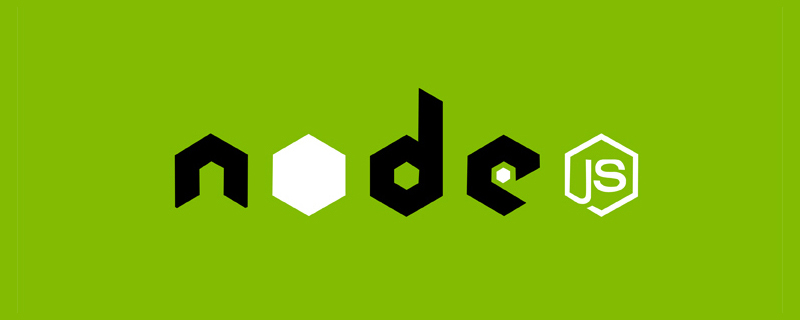
Nodejs was born in May 2009. It is a JavaScript running environment based on the Chrome V8 engine developed by the great god Ryan Dahl; it uses an event-driven, non-blocking I/O model to allow JavaScript to run Development platform on the server side.

The operating environment of this tutorial: windows7 system, nodejs version 12.19.0, DELL G3 computer.
Nodejs was born in May 2009. It is a JavaScript running environment based on the Chrome V8 engine developed by the great god Ryan Dahl.
Ryan's job is to write servers in C. Later he summed up an experience that a high-performance server should meet the "event-driven, non-blocking I/O" model. C was more troublesome to develop, so Ryan wanted to find a higher-level language for rapid development. It can be said that two points contributed to the birth of Nodejs.
The origin and background of node
Ryan Dahl’s experience is rather strange. He is not a developer with a professional background. In 2004, he was still working in Rocher, New York. I was studying for a PhD in the Department of Mathematics at the University of Sturt, during which I studied some fractals, classifications and p-adic analysis. These had nothing to do with open source and programming. In 2006, he had the idea "The world is so big, I want to see it" With the idea of reading, he made the decision to drop out of school and started some research on cloud to carry out his work. Using Ruby on Rails to develop a website for a snowboard company was the beginning of his formal programming career. (You can see the subsequent development of events. Myself...)
Until 2008, Chrome was released, and the V8 JavaScript interpreter was released at the same time. This is a great and powerful operating environment. After V8 was released, Ryan Dahl started analyzing it. It looked charming and clean, and very quickly, suddenly Ryan Dahl thought: JavaScript is single-threaded and already non-blocking, but in web browsers people It's a bit ironic that non-blocking requests have been implemented when using AJAX requests and events
Ryan Dahl believes that JavaScript combined with asynchronous IO, combined with some HTTP server events, will become a very cool thing, so in the next He has been doing this work for the next four years
In February 2009, based on the new idea, he submitted the first line of code for the project, and the name of the project was eventually named "node"
Ryan Dahl gave a speech about Node.js at the JSConf EU conference in Berlin, and Node.js gradually became popular in the world.
So Ryan Dahl joined Joyent (a startup company in Silicon Valley) in 2010 and was responsible for the development of the Node.js project full-time. At this time, the Node.js project has entered the second stage of its life: from a personal project to a project under a company organization.
His idea for node is to do everything in a non-blocking way. This can solve many problems encountered in the programming process. For example, we can completely eliminate the need to turn off thread processing and only use process abstraction and sequences. Chemical communication can complete our work. And in the process, the completely asynchronous method can handle many, many requests, which convinced him that this method is very good (long after Ryan Dahl met Go, he changed his original idea because Go has the right Green threads and easy-to-use abstractions, because the interfaces between Go and the operating system are both green threads and non-blocking I/O. However, the interfaces they give users are blocking, which is very user-friendly. For example Handle event A, wait for a response or an error; handle event B, wait for a response, if an error occurs it's obvious to know what to do and what to do. But in Node, this becomes more difficult, because you have to jump to another function call Multiple callback operations, although the development of the node community has made a good solution for this method of processing, but the essence is different from Go)
[Recommended learning: "
nodejs TutorialThe above is the detailed content of When was nodejs born?. For more information, please follow other related articles on the PHP Chinese website!